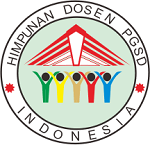PENGARUH MODEL PEMBELAJARAN PROBLEM-BASED LEARNING (PBL) BERBASIS NEUROSAINS TERHADAP MOTIVASI BELAJAR DAN HASIL BELAJAR SISWA PADA MATA PELAJARAN PPKn SISWA SMP KELAS VIII
DOI:
https://doi.org/10.24114/js.v9i3.67354Abstract
Abstract: Students' learning motivation in the subject of Pancasila and Citizenship Education (PPKn) at SMPIT Darul Fikri is still relatively low, which has an impact on understanding the concepts and application of Pancasila values in everyday life. One of the factors causing this is the conventional learning methods that are less interactive, such as lectures (expository), which make students passive and less interested in the learning process. To overcome this problem, this research applies the neuroscience-based Problem Based Learning (PBL) model to improve student motivation and learning outcomes. This approach is based on the principle that learning that considers how the brain works can increase student engagement and help them understand the material more effectively. This study used a quantitative method with an experimental design, comparing a class taught using neuroscience-based PBL with a class taught using the expository method. Data were collected through learning outcome tests and learning motivation questionnaires, then analyzed using statistical tests. The results showed that there was a significant increase in the motivation and learning outcomes of students taught with the neuroscience-based PBL model compared to the expository method. The average N-Gain value of learning outcomes in the experimental class was higher than the control class, indicating that this approach is effective in improving students' understanding of Civics material. The conclusion of this study is that the application of neuroscience-based PBL can improve student motivation and learning outcomes in Civics subjects. This approach provides a more active learning experience, stimulates student engagement, and increases the internalization of national values. Therefore, it is recommended for educators to adopt more innovative and neuroscience-based learning methods to improve learning effectiveness. Keyword: Learning Motivation, Problem Based Learning (PBL), Neuroscience, Pancasila and Civics Education (PPKn), Learning Outcomes Abstrak: Motivasi belajar siswa dalam mata pelajaran Pendidikan Pancasila dan Kewarganegaraan (PPKn) di SMPIT Darul Fikri masih tergolong rendah, yang berdampak pada pemahaman konsep dan penerapan nilai-nilai Pancasila dalam kehidupan sehari-hari. Salah satu faktor penyebabnya adalah metode pembelajaran konvensional yang kurang interaktif, seperti ceramah (ekspositori), yang membuat siswa pasif dan kurang tertarik dalam proses pembelajaran. Untuk mengatasi permasalahan ini, penelitian ini menerapkan model Problem Based Learning (PBL) berbasis neurosains guna meningkatkan motivasi dan hasil belajar siswa. Pendekatan ini didasarkan pada prinsip bahwa pembelajaran yang mempertimbangkan cara kerja otak dapat meningkatkan keterlibatan siswa dan membantu mereka memahami materi dengan lebih efektif. Penelitian ini menggunakan metode kuantitatif dengan desain eksperimen, membandingkan kelas yang diajar menggunakan PBL berbasis neurosains dengan kelas yang diajar menggunakan metode ekspositori. Data dikumpulkan melalui tes hasil belajar dan angket motivasi belajar, kemudian dianalisis menggunakan uji statistik. Hasil penelitian menunjukkan bahwa terdapat peningkatan signifikan dalam motivasi dan hasil belajar siswa yang diajar dengan model PBL berbasis neurosains dibandingkan dengan metode ekspositori. Nilai rata-rata N-Gain hasil belajar di kelas eksperimen lebih tinggi dibandingkan kelas kontrol, menunjukkan bahwa pendekatan ini efektif dalam meningkatkan pemahaman siswa terhadap materi PPKn. Kesimpulan dari penelitian ini adalah bahwa penerapan PBL berbasis neurosains dapat meningkatkan motivasi dan hasil belajar siswa dalam mata pelajaran PPKn. Pendekatan ini memberikan pengalaman belajar yang lebih aktif, menstimulasi keterlibatan siswa, dan meningkatkan internalisasi nilai-nilai kebangsaan. Oleh karena itu, disarankan bagi pendidik untuk mengadopsi metode pembelajaran yang lebih inovatif dan berbasis neurosains guna meningkatkan efektivitas pembelajaran. Kata Kunci: Motivasi Belajar, Problem Based Learning (PBL), Neurosains, Pendidikan Pancasila dan Kewarganegaraan (PPKn), Hasil BelajarDownloads
Published
2025-06-29
How to Cite
Sarianto, Sukmayadi, D., & Syafruddin. (2025). PENGARUH MODEL PEMBELAJARAN PROBLEM-BASED LEARNING (PBL) BERBASIS NEUROSAINS TERHADAP MOTIVASI BELAJAR DAN HASIL BELAJAR SISWA PADA MATA PELAJARAN PPKn SISWA SMP KELAS VIII. JS (JURNAL SEKOLAH), 9(3), 589–600. https://doi.org/10.24114/js.v9i3.67354
Issue
Section
Articles
License
Copyright (c) 2025 Sarianto, Dodi Sukmayadi, Syafruddin

This work is licensed under a Creative Commons Attribution-ShareAlike 4.0 International License.

Jurnal Sekolah is licensed under a Creative Commons Attribution-ShareAlike 4.0 International License.
















